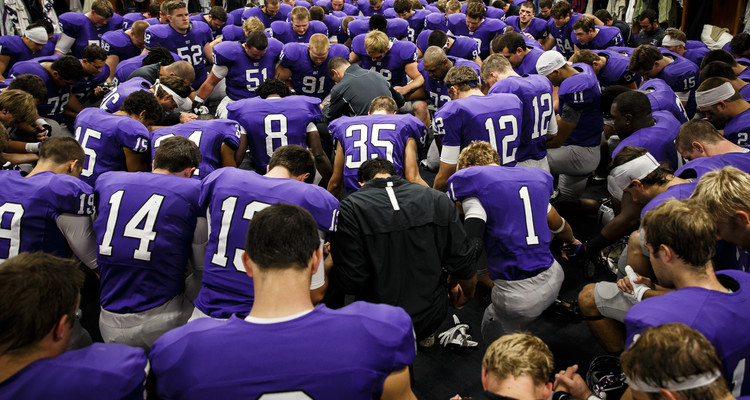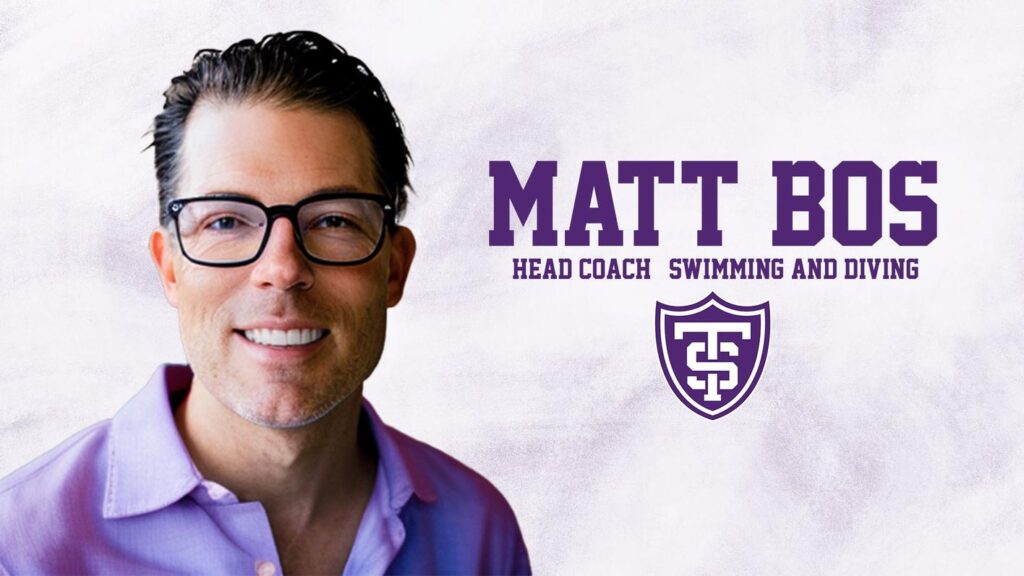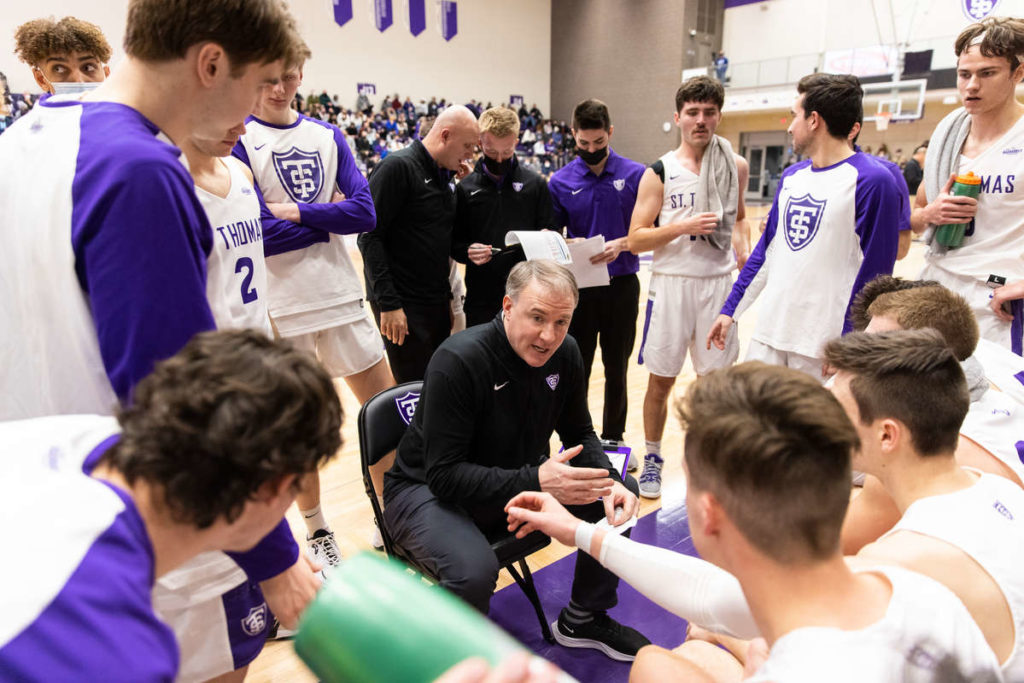Faith can mean a lot of different things. It can be a belief in someone or something, including in yourself. It can be a belief in the existence of God or some equivalent of a higher being. It can be a set of religious beliefs.
The common denominator tends to be belief, which can be broadly applied. So it comes as no particular surprise that, in talking with coaches and student athletes at St. Thomas, the intersection of faith and athletics can be seen as both intensely focused and multidimensional.
“It’s crazy the overlap you see in faith and athletics,” said Micaela Trainor, a senior softball player and a member of St. Thomas’ chapter of the Fellowship of Christian Athletes (FCA).
That overlap can show itself in myriad of ways: A quarterback releasing a pass and having faith that his teammate – not an opponent – will be there to catch the ball when it comes down; a group of basketball players bowing their heads in prayer and having faith their injured teammate will be OK; a vulnerable swimmer opening up to his coach about a difficult situation he's facing, and having faith he will be respected and supported.
“Faith is a belief in something that you can’t quantify or see. It’s certainly a belief in a greater good,” St. Thomas football coach Glenn Caruso said. “In some people’s minds that manifests itself in a deity, but it can manifest itself in someone else, in something you can give your heart and mind to. And if you’re willing to give your mind and heart away in a good community, then you will be rewarded many times over by what you get back.”
That reward is a large part of the goal for athletics at an institution such as St. Thomas, which is guided by a Catholic tradition but supports students exploring their own faith and finding their best selves in any number of different ways.
“Athletics doesn’t stand alone. We’re very much meshed with the institution,” said Steve Fritz, athletic director and former men’s basketball coach. “These young people are on their own for the first time, and developing their faith is part of that. Some will get very involved, maybe with FCA, Campus Ministry … others will find different paths. It comes out in a lot of different ways. The other big part of that age is the relationships they develop and, certainly faith has something to do with that, how you approach and develop relationships. Athletics provides a lot of that on a daily basis.”

The Schoenecker Arena during a women's volleyball game against Bethel.
Building faith
Because St. Thomas emphasizes balancing the “student” and the “athlete,” exploring faith through athletics makes sense in many different ways. Whether athletes take part for four years or less, they dedicate a lot of time and thought to their sport. That time, Caruso said, can be used to build on the rest of their experience at St. Thomas.
“Being at a school like St. Thomas affords you the opportunity of having that faith in every facet of your life here,” he said. “Other schools you might go to you could still have a faith-based experience, but it in some ways has to be segmented and compartmentalized.”
That faith certainly can be – and is – experienced in ties to traditional religious beliefs. The FCA at St. Thomas, for example, builds on the already existing common ground of athletics to give students a community to explore their Christian faith together.
“It’s easy in athletics to have that competitive mindset sometimes … but FCA provides a platform that’s comfortable and a safe place to talk,” Trainor said. “That’s something that’s freeing, to have that space to talk about deeper things than maybe what you’re talking about in your dorm room.”
Almost every sport at the school is represented within the St. Thomas FCA's nearly 40 members. By facilitating conversations with each other to talk about the Bible and the lessons to be gained in athletics, FCA members can explore their own faith as well as gain a deeper appreciation for where their teammates shared, or not shared, beliefs are.
“What I’ve learned is to meet people where they’re at. Not everyone’s going to be in the same position,” said senior softball player Allie Rice. “Just being genuine with your teammates, being a good friend and a good listener, is what’s most important in that team community we’re in together.”
A great strength of St. Thomas, Caruso said, is the way it supports students exploring faith in any way, not just in the Catholic tradition.
“St. Thomas is there to nurture and educate and sustain you with what you need. If your journey takes you on digging deep into the Catholic faith, it absolutely sustains and enhances that,” he said. “If it’s to grow your faith in general and it doesn’t happen to be in the Catholic tradition … it can sustain and add to that as well. We’re well aware not every student is Catholic. St. Thomas leads with a Catholic identity … but it’s very nourishing for those who may not be in the Catholic Church but are faith based.”
Fritz said that flexibility comes from the university’s mission, which applies to the faith found throughout athletics.
“That’s how you build good teams: You have to have faith in each other, you have to have faith in the coach,” he said. “You do find out that different coaches have different comfort levels and might bring it out in different ways, but there’s a common element: We try to build a staff that believes in the mission of the university and working for the common good. Thinking critically, acting wisely, and putting all that together along with what’s going on in the classroom and on the field. That can provide the basis for the rest of your life.”
Athletics, then, can be seen as an extension of the intersection faith has throughout all life. Life includes athletics for many students at St. Thomas, and the opportunity to grow in faith through their experience is something many take advantage of.
“It’s just the nature of sport, especially team sport, is such that has so many parallels to what faith teaches,” Caruso said. “If you’re willing to look for them, acknowledge them and grow from them, those two work really, really well together.”






